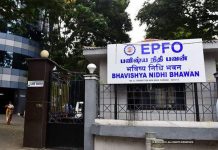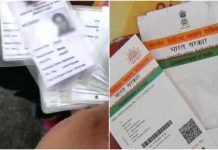What are government bonds? How to invest in Government Securities, key features, advantages explained
Government Securities (G-Sec) are issued in the primary market through auctions conducted by Reserve Bank of India (RBI).

‘Where to invest’ is one of the most sought after questions. While this may have many answers based on the opinions and mindset of different people, an investor always wants to have assured returns. There are only a few investment instruments in the market which offers an assured return. Some of them are fixed deposits, Public Provident Fund and Government Bonds. So, if you have idle funds lying with you that yield no return, you can consider Government Bond. Investing in Government Bonds comes with the benefits of safety, security as well as assured returns.
“Government Securities (G-Sec) are issued in the primary market through auctions conducted by Reserve Bank of India (RBI). An investor, depending upon eligibility, may bid in an auction under Competitive Bidding or Non-Competitive Bidding. Institutional investors such as banks, financial institutions, primary dealers, mutual funds, and insurance companies are generally eligible to make competitive bids,” says NSE website.
It further says that to encourage retail investment in Government Securities (G-Secs), the facility of non-competitive bidding (NCB) has been introduced. Under the scheme, eligible retail investors apply for a certain amount of securities in an auction without mentioning price/yield. Such bidders are allotted securities at the weighted average price/yield of the auction.
Investing in Government Securities
Eligible retail investors necessarily have to participate in non-competitive bidding (NCB) at RBI through an aggregator or facilitator. NSE acts as facilitator in NCB to aggregate the bids received from the retail investors and submits a single bid at RBI. Retail investors have multiple channels through which they can place their bids. Retail investors can place their bids through trading members of NSE or using the NSE goBID mobile app/web platform.
How to invest in government securities?
Retail investors have multiple channels to invest in treasury bills (T-Bills) and Government of India (GoI) dated bonds in the primary market. Retail investors can place their orders through any one of the following options available under the non-competitive bidding facility offered by NSE.
| Retail investors registered with NSE trading member | All Resident Individuals | ||
|---|---|---|---|
| Option 1: Through NSE Trading Member | Option 2: Through NSE goBID mobile app/web platform | Through NSE goBID mobile app/web platform | |
| Eligible Investors | All eligible investors as permitted by RBI | All eligible investors as permitted by RBI | Only resident individuals |
| KYC Compliance | If existing active client of NSE trading member, no additional KYCNew investor should complete KYC with NSE trading member | If existing active client of NSE trading member, no additional KYCNew investor should complete KYC and register as client with NSE trading member | No additional KYC if already done through any of SEBI registered intermediaryNew investor should complete KYC with any SEBI intermediary |
| Demat Account | Mandatory | Mandatory | Mandatory |
| Investor Registration | No additional registration required if already having active account with NSE trading member | One time registration on NSE goBID platform | One time registration on NSE goBID platform |
| New investor registration on NSE goBID | Not applicable | Investor selects respective trading member at time of registration*Registration subject to – Respective trading member has provided valid investor records to ExchangeSuccessful validation of investor category, demat and bank account with depositories* Available only if trading member is registered (See Point 1 below) on NSE goBID |
Investor can register directly without selecting trading member of NSERegistration subject to – Valid KYC details of investor available with SEBI registered KRA including mobile number, email address, investor categorySuccessful validation of demat and bank account with depositories |
| Undertaking by investor | Submit to trading member of NSE in format provided by NSE | Accept e-undertaking on NSE goBID and Terms & Conditions | Accept e-undertaking on NSE goBID platform and Terms & Conditions |
| Order placement | Submit offline or online through mobile app / web platform to the trading member | Submit through NSE goBID mobile app / web platform | Submit through NSE goBID mobile app / web platform |
| Bid | Only single bid per security in an auction is permitted | Only single bid per security in an auction is permitted | Only single bid per security in an auction is permitted |
| Payment and refund of funds | Payment and refund of funds through trading member | Payment and refund of funds through NSE Clearing Ltd. Mandatory to have online banking facilityFunds accepted only from bank account linked to demat account (see point 2 below). | Payment and refund of funds through NSE Clearing Ltd. Mandatory to have online banking facilityFunds accepted only from bank account linked to demat account (see point 2 below). |
| Credit of Securities | Directly in demat account of investor | Directly in demat account of investor | Directly in demat account of investor |
Key Features of Government Securities
* Securities issued by the Government of India
* Issued through Reserve Bank of India on behalf of the Central Government of India
* Treasury bills have maturity of 91 days, 182 days and 365 days
* Treasury bills are zero coupon bonds. They are issued by discount and redeemed at face value
* Government bonds or dated securities have maturities of upto 40 years
* Government bonds pay interest every six months
Advantages of investing in Government Securities
* Safety: Being Sovereign security, no default risk
* Ease of Exit: Investor can sell the government bonds in the secondary market
* Fixed income investment available across the maturities
* No TDS applicable on interest
* Can be held in existing demat account
Government Securities (G-Sec) are issued by the Central Government. Such securities are short term (usually called treasury bills, with original maturities of less than one year) or long term (usually called Government bonds or dated securities with original maturity of one year or more).






























